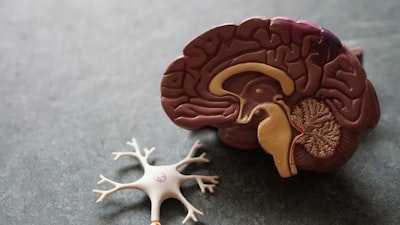Identify Your Triggers
Most of us have heard of the ‘fight or flight’ response while we face a problem, obstacle or danger. Impatience is the ‘fight’ part of the same.
Our brains have a set of nervous tissue called the Amygdalae which is not nuanced enough to understand that all threats and dangers are not the same, not requiring the same (extreme) reaction. If one can bifurcate between true danger and less-serious threats, it is a good start to control your emotions.
387
2.91K reads
CURATED FROM
IDEAS CURATED BY
The idea is part of this collection:
Learn more about personaldevelopment with this collection
How to break bad habits
How habits are formed
The importance of consistency
Related collections
Similar ideas to Identify Your Triggers
Oxytocin integrally involved
Oxytocin pair bonds, group sharing, and consoling behavior, and is also very sensitive to danger. It protects against threats based on the nuances of social behavior. Oxytocin activates the alarm systems of the fight-or-flight response.
The same oxytocin that supports love and ki...
The fight or flight response
The fight or flight response is a powerful survival reaction. Once we perceive danger, adrenalin increases our heart rate and move our attention toward fighting off or fleeing from the threat.
We may become so focused on that goal that we may not process any extra details ...
Depression Starts with Immobilization
Our autonomic nervous system is constantly scanning our internal and external environment for signs of danger. If it detects a threat, its next strategy is the fight or flight response which we often feel as anxiety.
Sometimes the threat is so bad or goes on for so long, that the nervous ...
Read & Learn
20x Faster
without
deepstash
with
deepstash
with
deepstash
Personalized microlearning
—
100+ Learning Journeys
—
Access to 200,000+ ideas
—
Access to the mobile app
—
Unlimited idea saving
—
—
Unlimited history
—
—
Unlimited listening to ideas
—
—
Downloading & offline access
—
—
Supercharge your mind with one idea per day
Enter your email and spend 1 minute every day to learn something new.
I agree to receive email updates

